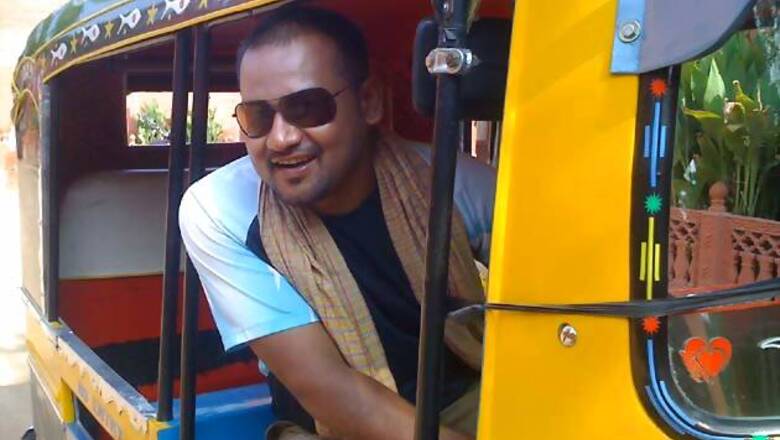
views
New Delhi: DearCinema brings to you a few voices that define the Indie scene in India today, ruminating over what independent cinema means to them. Straight from the horse's mouth. Following Q, Shonali Bose, Onir and Shivajee Chandrabhushan, in the fifth in the series, filmmaker Nila Madhab Panda whose debut feature film 'I Am Kalam' won a national award and much critical acclaim speaks his mind on indie filmmaking:
Recently, I was at a round table discussion on 'Managing and Protecting Creativity' at IIM Bangalore. Alongside me were several legendary filmmakers and dancers. When their turn came, each of them said they were not great speaking in front of an audience. But I feel if our generation does not speak out, we will keep on having such seminars and talks, on Indie cinema, and on creating and protecting creativity, without any result ever. So, I believe in speaking my mind, as I did at the round table. Because I strongly feel that if we have to take forward our cinema and our arts, we have to be proactive, to the extent that we look at even the otherwise routine-sounding seminars and conferences as a platform to take forward the movement and the struggle to create art work in consonance with the sensibilities of the modern times.
It has been a long journey for me. To say 'I am an independent filmmaker' is easy, and I see many a filmmaker saying this. But to be really independent, you have to have the passion, the aptitude to carry out a struggle and to be ready to take the burden of uncertainty that comes with any creative process.
Unfortunately, today we see even films backed by production houses being labeled as independent works of art just because they have small budgets and non-star actors. While these films do come up occasionally with interesting subjects and treatments, they still are not truly independent films.
Independent films are those where the money is truly independent, sometimes your own, and they get made because you have the passion to make them, not because you see them as a commercial proposition. Today, as it's getting relatively easier to find a job with a studio, or to get work with TV and thus earn your daily bread, there are fewer people who are really making independent films.
After all the struggle I did in my initial years, and with the struggle I still have to do as someone who wants to make independent films, somehow I feel that true independent work is possible only if you have the guts to risk everything you have, and without any obligation to anyone.
My idea of independent filmmaking is to work on an idea that is completely independent of the usual environment of filmmaking, so that I can make films on subjects that I am truly convinced about. The good thing about being based in Delhi is that here one can be connected with the whole of India in a true sense since it is the political capital of the country. Also, while Delhi for long has been a favourite location for film shooting, I am also trying to work towards getting it established as another film production location, in addition to Mumbai which is home to Bollywood.
I think the whole art sector is going through a unique journey. While one part (the performing arts, such as dance, classical music, folk music) is struggling to make money for survival, the other (cinema) is going through only commerce, without much heed to the artistic side of it. It's affecting us a lot, since we live in one of the biggest consumer countries. As much of it is in the control of corporate houses, cinema has transformed into an entity in which brand management and promotion come first, and drama and emotion come next. Whether it is TV soap operas or cinema, it's sadly the same story today. Within this limit, it's a big struggle to bring out good cinema. And quite clearly, it's an important time for Indie cinema to be able to survive.
Not just cinema, but the overall creative industry suffers from lack of independent production, and also the access to really independent production, be it music, theatre or the arts, because we are still not counted as a separate industry, and the economy we create is not counted under a separate head. Once the government calculates the creative economy, it will be easier even for the government to support the artiste. Today, Since there is no proper support structure (it's only the NFDC and the CFSI for cinema, and that's very little support in a country where there are so many states, languages) for the artiste, it's important for the government to have a separate 'creative economy' so that the wealth quotient of the creative industry can be understood in its true nature.
I sacrificed a lot of my creative time to create a Screenwriting Lab so that Indian cinema can move forward. Many people came, talked and went away, but nobody ever bothers to follow up, take it forward or join hands to help since there is no direct commerce involved with it.
####




















Comments
0 comment